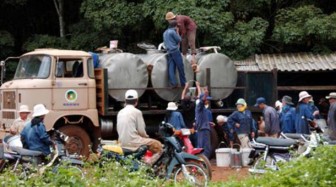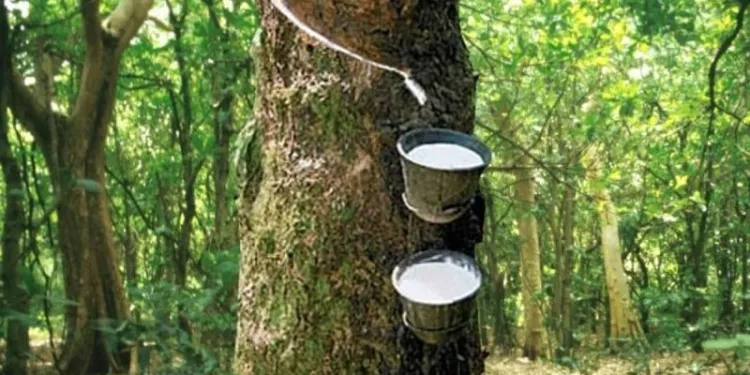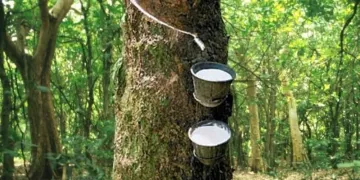 Thailand has called on foreign tire producers to open plants in the country, which remains the world’s largest rubber producer, in effort to promote its domestic market and simultaneously contain its rubber export volume.
Thailand has called on foreign tire producers to open plants in the country, which remains the world’s largest rubber producer, in effort to promote its domestic market and simultaneously contain its rubber export volume.
Deputy Agriculture Minister Yutthapong Charasathian said on Tuesday that the Thai government has sounded out leading tire manufacturers in the United States, China and Japan, to expand their tire manufacturing operations in the country.
Thailand produces an estimated three million tons of rubber annually. The foreign tire manufacturers are among the world’s major importers of Thai rubber.
In order to prevent surpluses in the world rubber markets, which would otherwise keep the prices plummeting, Thailand has resolved to reduce a yearly export volume of rubber by 170,000 tons while Malaysia and Indonesia agreed to also cut down on their export volumes by a combined 130,000 tons annually.
The three Southeast Asian countries, which decided to reduce a combined 300,000 tons in rubber export volumes during an International Tripartite Rubber Council’s meeting earlier this year, planned to set up a “central rubber market” in effort to jointly contain their export volume and stabilize rubber prices in the world market.
“In the face of the government’s plans to reduce the rubber export volume, we’ll have to increase the domestic consumption of the rubber from 16 to 20 per cent annually. For that reason, we’ve suggested the leading tire manufacturers in the US, China, Japan and other countries to come to Thailand and open tire factories,” Yutthapong said.
Yutthapong said he is certain that the Board of Investment of Thailand would provide incentives to foreign tire manufacturers who are willing to relocate or open new tire-making plants in Thailand.
He said the Yingluck government has resolved to push the domestic rubber price up from 80 baht ($2.6) per kilogram to not lower than 100 baht ($3.3) per kilogram. His predecessor, Nattavudh Saikua, had earlier pledged to increase the price of domestic rubber to as much as 120 baht ($4) per kilogram.
The government has also planned to promote the use of rubber in the construction or repair of roads throughout the country by mixing rubber with asphalt in paving roads. Rubber-mixed asphalt roads are said to be more durable than those made of pure asphalt.
Yutthapong said that the government-run Rubber Estate Organization has been purchasing large volumes of rubber from local planters nationwide through a 30 billion baht ($1 billion) funding from the government to bolster the domestic rubber prices. That sum has been provided in addition to a 15 billion baht ($500 million) in funding given early this year.
In bid to contain a rubber surplus, the government has urged rubber planters throughout the country to reduce their respective productions.
“Rubber planters have been urged to cut down their old rubber trees and replant them with seedlings which will take a five- to seven-years time to grow up and yield latex. That will certainly contain excesses in domestic rubber productions and consequently keep the rubber prices from going down further,” Yupphapong said.
Thailand currently has 7.5 million acres of rubber plantations in all regions of the country, some 4.8 million acres of which are located in the southern region. An estimated six million Thais currently earn their livelihood in rubber plantations.
Source: globaltimes.cn


























